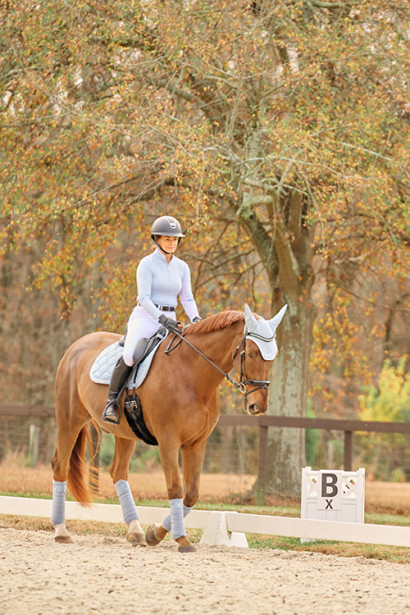Fall Vaccinations for Horses - Scheduling Seasonal Vaccinations
By: Dr. Lydia Gray | Updated March 11, 2025 by SmartPak Equine

"Why do we give shots in spring? Can I have my vet give them in the fall instead?"
– question via HorseChannel.com
You can absolutely work with your veterinarian and reserve some vaccinations for the fall rather than give them all in the spring! Selection of vaccines and when is the most appropriate time to give them is a great conversation to have with your personal vet, as much depends on where you live in the country and what you do with your horse.
Core Vaccines for Horses
Of the core vaccines as defined by the American Association of Equine Practitioners (AAEP), tetanus and rabies could be given at any time of year because the way that horses contract these diseases is either though a wound, in the case of tetanus, or the bite of a carrier animal, in the case of rabies, neither of which is seasonal. That is, they are not passed by insects or by other horses at equine events.
Mosquito-Borne Diseases
The other core vaccines are Eastern and Western Equine Encephalomyelitis (EEE and WEE) and West Nile Virus (WNV). These three life-threatening diseases are spread by mosquitos so your vet will want to vaccinate your horse just before the beginning of mosquito season in your area.
If you live in a region that hosts a mosquito population year-round, twice-yearly vaccination for EEE, WEE, and WNV may be recommended. However, if you and your horse are located in the more northern climates and do not plan to travel south for the winter, a spring series of boosters should get you through the season and into the fall when cooler temperatures kill off mosquitos.
Risk Based Vaccinations for Horses
Moving on to risk-based vaccines, these include protection against such diseases as anthrax, botulism, and strangles, as well as influenza, herpesvirus (EHV or rhino), and Potomac Horse Fever.
Geographic Considerations for Vaccines
Just like the diseases above, the main consideration for if and when to immunize against these is based on geography and horse activity.
For example, Potomac Horse Fever has a seasonal component to it, so your horse will benefit most if this vaccine is given in the spring. Botulism is endemic in some states — such as the Mid-Atlantic states and Kentucky, along with several western states – but sporadic in others. Strangles commonly affects young horses like weanlings and yearlings but horses of any age can be infected. And, the USEF Vaccination Rule requires proof of influenza and herpesvirus vaccination within six months of competing.
Customizing Your Horse’s Fall Vaccination Schedule
It can be a lot to try and understand and remember, which is why your vet is your best friend when it comes to proper selection, timing, and administration of vaccines. Some of the diseases mentioned above can be fatal, so why risk your horse’s health by guessing wrong?
Ask the Vet video on why your vet is your best vaccine resource
In this Ask the Vet video, Dr. Gray explains why it's critical to speak with your horse's veterinarian when figuring out what to vaccinate for and when to give the shots.
As you ease into fall, review this horse care checklist to keep your horse's nutrition, exercise, and veterinary care top of mind.